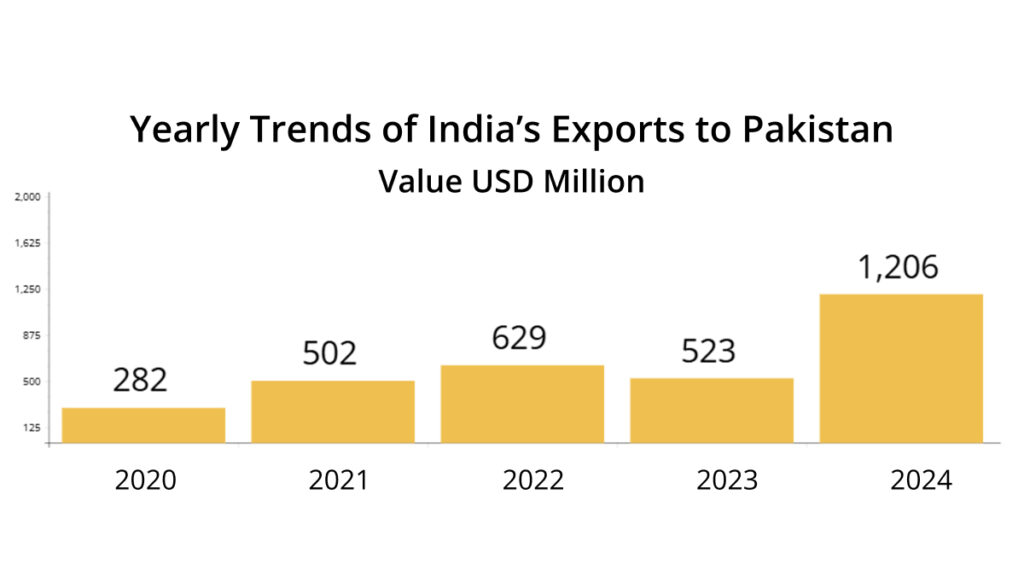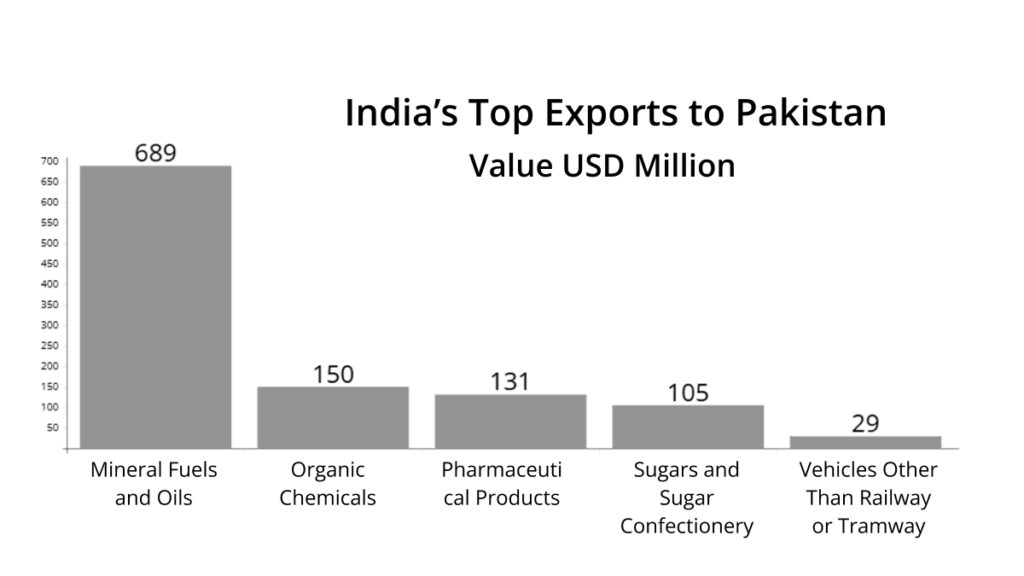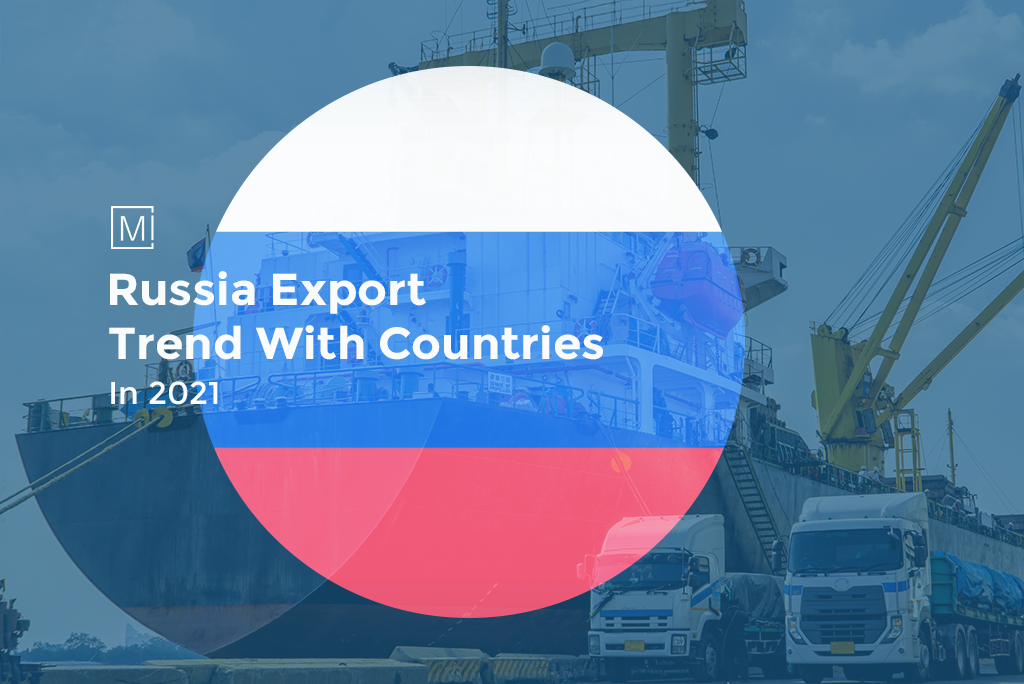The India-Pakistan conflict is a long-standing geopolitical tension rooted in historical, territorial, and political disputes—especially over the Kashmir region. This conflict has seen several wars, skirmishes, and ongoing diplomatic challenges. While full-scale war has been avoided since 1999, periodic escalations (e.g., the Pulwama-Balakot episode in 2019 and now the Pahalgam attack in 2025) continue to affect domestic and regional dynamics. The ongoing military exchange from both sides has affected the share market and may impact the global economies of both countries, particularly Pakistan.
Let’s break down the possible impacts of this conflict on trade, the economy, and the share markets:
Impact on Trade
Bilateral Trade
Minimal trade volume: India and Pakistan have very limited direct trade. As of recent years, trade is negligible, especially after the 2019 Pulwama attack, after which both countries suspended most trade ties.
Pakistan revoked India’s MFN (Most Favored Nation) status, and India imposed 200% tariffs on Pakistani goods.
Smuggling and informal trade via third countries (like the UAE) persist, but official trade remains low.
Impact: Since bilateral trade is already minimal, conflict escalation does not significantly affect the trade volumes, but it completely shuts down even informal or backdoor trade and reduces regional integration prospects.

| Year | Value USD Million |
| 2020 | 282 |
| 2021 | 502 |
| 2022 | 629 |
| 2023 | 523 |
| 2024 | 1,206 |
Mineral fuels and oils, organic chemicals, pharmaceutical products, sugars, and vehicles are major industries that India exports to Pakistan. Data is visualized below.

| Commodity | Value USD Million |
| Mineral Fuels and Oils | 689 |
| Organic Chemicals | 150 |
| Pharmaceutical Products | 131 |
| Sugars and Sugar Confectionery | 105 |
| Vehicles Other Than Railway or Tramway | 29 |
Impact on the Economy
Short-Term Impact
Military escalations or terrorism-related incidents divert national focus and resources toward defense.
Investor confidence may waver, particularly with foreign institutional investors (FIIs) becoming risk-averse.
Tourism and hospitality—especially in border states—can suffer due to security concerns.
Long-Term Impact
Sustained tensions deter regional cooperation like SAARC initiatives and reduce the possibility of South Asia developing as a trade bloc.
Defense spending rises, diverting budgetary allocation away from infrastructure, healthcare, and education.
Cross-border instability affects economic planning and can lead to reduced FDI (foreign direct investment).
Impact on India: Being a much larger and more globally integrated economy, India is more resilient, but prolonged instability can still dent GDP growth projections due to investor hesitation and policy shifts.
Impact on Pakistan: The Pakistani economy is more vulnerable—already constrained by IMF bailouts and fiscal deficits. Military tensions often worsen economic crises, leading to currency depreciation and inflation.
Impact on Share Markets
India
Indian stock markets respond sharply to conflict news but usually recover quickly unless the conflict is prolonged or escalates into war.
Sectors impacted:
Defense & infrastructure (often see a boost).
Aviation, tourism, and energy (often decline due to higher fuel costs and reduced consumer confidence).
Banking & finance can become volatile if investor sentiment dips.
Pakistan
The Pakistan Stock Exchange (PSX) is more sensitive to such tensions, with sharp and prolonged declines during major escalations.
Reduced investor confidence and capital flight can follow any conflict with India.
Summary Table
| Area | India Impact | Pakistan Impact |
| Trade | Minimal disruption; already low | Severe disruption; limited trade |
| Economy | Short-term dip in investment sentiment | Long-term economic strain and instability |
| Stock Markets | Volatile, quick rebound possible | Highly sensitive, may lead to sharp declines |
The Bottom Line
While conflict escalation has a short-term psychological and financial impact, markets and economies, especially in India, have shown resilience in the past. Long-term peace and economic integration could offer massive gains through trade, investment, and regional stability. However, political tensions and strategic interests continue to prevent sustained economic cooperation. Get all import export updates at Market Inside.



